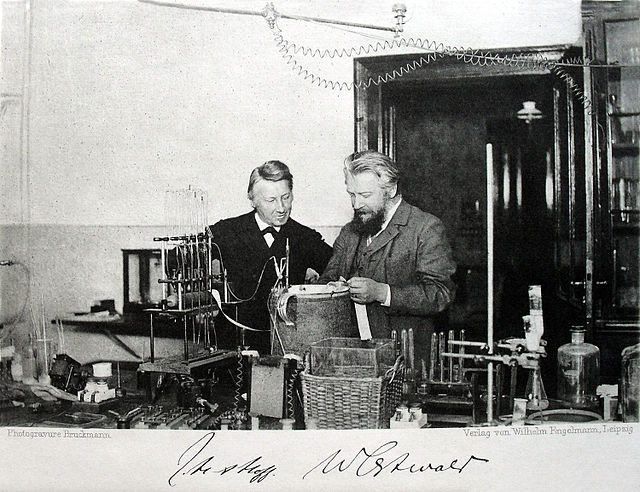Theoretical chemistry is the branch of chemistry which develops theoretical generalizations that are part of the theoretical arsenal of modern chemistry: for example, the concepts of chemical bonding, chemical reaction, valence, the surface of potential energy, molecular orbitals, orbital interactions, and molecule activation.
Jacobus van 't Hoff (1852–1911), an influential theoretical chemist and the first winner of the Nobel Prize in Chemistry.
Jacobus Henricus van 't Hoff
Jacobus Henricus van 't Hoff Jr. was a Dutch physical chemist. A highly influential theoretical chemist of his time, van 't Hoff was the first winner of the Nobel Prize in Chemistry. His pioneering work helped found the modern theory of chemical affinity, chemical equilibrium, chemical kinetics, and chemical thermodynamics. In his 1874 pamphlet, van 't Hoff formulated the theory of the tetrahedral carbon atom and laid the foundations of stereochemistry. In 1875, he predicted the correct structures of allenes and cumulenes as well as their axial chirality. He is also widely considered one of the founders of physical chemistry as the discipline is known today.
Van 't Hoff by Nicola Perscheid in 1904
Van 't Hoff in the 1900s
J.H. van 't Hoff with Wilhelm Ostwald (right)



